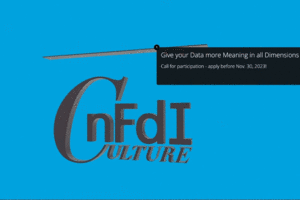News Item | 26. February 2024
Announcing the launch of the »Give your Data More Meaning in all Dimensions« programme with pilot project participants
By Dr. Lozana Rossenova and Zoe Schubert, M. A.
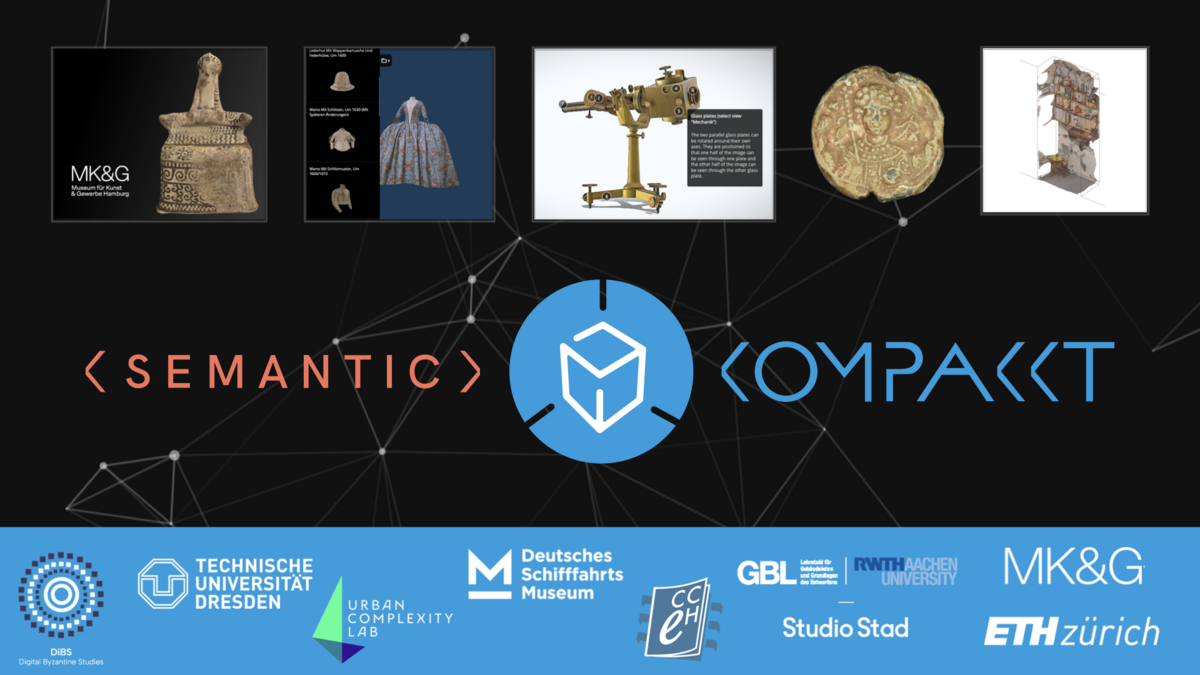
The programme ‘Give your Data More Meaning in all Dimensions’ will work with 8 projects from a range of institutions from Germany, Switzerland and the Netherlands to test the capacities of Semantic Kompakkt to hold diverse sets of 3D objects and contextual metadata and make that data available for further reuse, querying and visualisation.
The programme is run by TA1 Digitisation and Data Enrichment and the Semantic Kompakkt team at Open Science Lab, TIB. Planned activities in 2024 include three synchronous online workshops with all participating projects, asynchronous working sessions for data curation and upload with support from the TIB team, as well as a networking event in Berlin in the end of the year. The results of the programme will intend to grow the user community and the freely available data in Semantic Kompakkt which can benefit the whole NFDI4Culture community, furthermore feedback from the synchronous and asynchronous working sessions will be used to iteratively refine the Semantic Kompakkt development roadmap, so that by the end of the first 5 years of NFDI4Culture, a mature version of the product with a range of showcase projects can be released to the community.
Learn more about all participating projects below. If you’re interested in participating in similar programmes in the future, get in touch with the appointed contacts below.
Project 1: I see 3D x sustainability
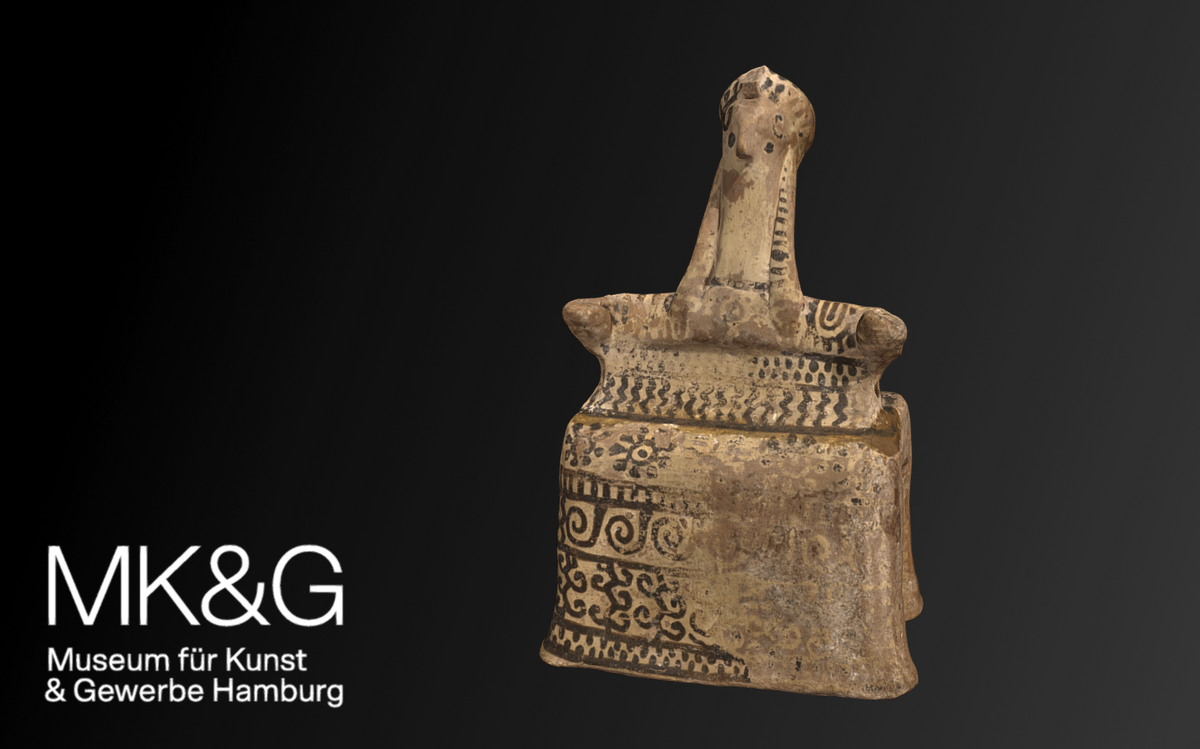
Thronendes Brettidol
CC0 Creator: MK&G Hamburg
The Museum für Kunst und Gewerbe, Hamburg, have already successfully completed a pilot project for 3D digitization, which tested various use cases and processes. By participating in this programme, the team plans to focus on the sustainable implementation of the results. This includes the networking of previously disparate knowledge resources and data and a central location from which the data can then be reused in various contexts (online and onsite). This would impact the planned relaunch of the digital collection, as well as AR applications in the museum.
Project 2: Digital Maritime Cultural Heritage: 3D objects from the collections of the German Maritime Museum
The 3D digitization of collection objects at the DSM is focused on "in-depth indexing" for multidisciplinary research in terms of the object’s materiality, functionality or origin and history. The digitization programme aims to contribute to quality assurance and quality enhancement for cooperative, multidisciplinary international research, teaching and communication at the DSM. From February 2024, digital 3D objects from the DSM will also be made accessible to the public as part of an online presentation of the collection holdings, the so-called Depot Digital. While the main focus of Depot Digital is the public visibility of the objects, participating in the CfP for Semantic Kompakkt is primarily intended to make the scans and associated metadata available under FAIR data principles. Semantic Kompakkt enables us to make maritime objects and their data from Germany's most extensive maritime collection accessible and addressable for further research projects and perspectives, as well as to convey a vivid impression of ongoing research projects and exhibitions at the DSM by means of curated object clusters.
Project 3: Restaging Fashion: Digital contextualization of vestimentary sources
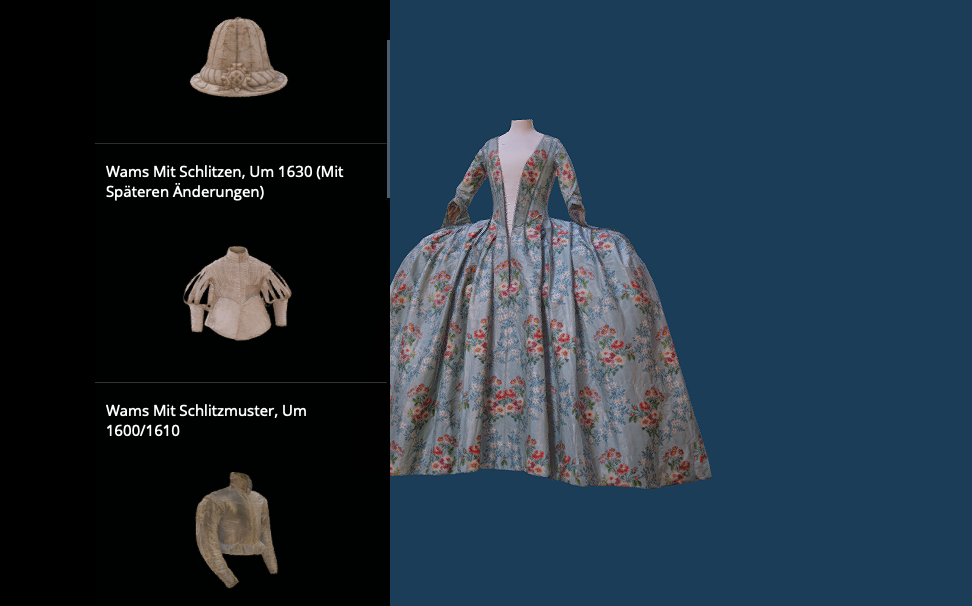
Restaging Fashion 3D model sample
CC-BY-SA Creator: UCLAB, Potsdam
The interdisciplinary research and digitization project Restaging Fashion from UCLAB Potsdam elaborates new perspectives on historical dress. This project deals with 15 navigable 3D models from the Germanisches Nationalmuseum in Nuremberg. Textiles are among the most difficult objects to capture, as they are movable, partly transparent and arranged in layers. Historical clothing is also fragile and must be presented on individual figurines. When selecting the 15 models, care was taken to represent a wide range of materials. Not every material could be depicted using the methods of scanning and photogrammetry. In 2024, new data from the virtual reconstruction of historical clothing from the Kunstgewerbemuseum Berlin, will be used to showcase a differnt form of digitization which will not involve a surface scan, but rather the reconstruction and interaction of different layers, the articulation of materials in movement and contextualization in space. Data from both collections can benefit from the dissemanition and semantic enrichment capabilities of Semantic Kompakkt.
Project 4: Scientific instruments and teaching aids
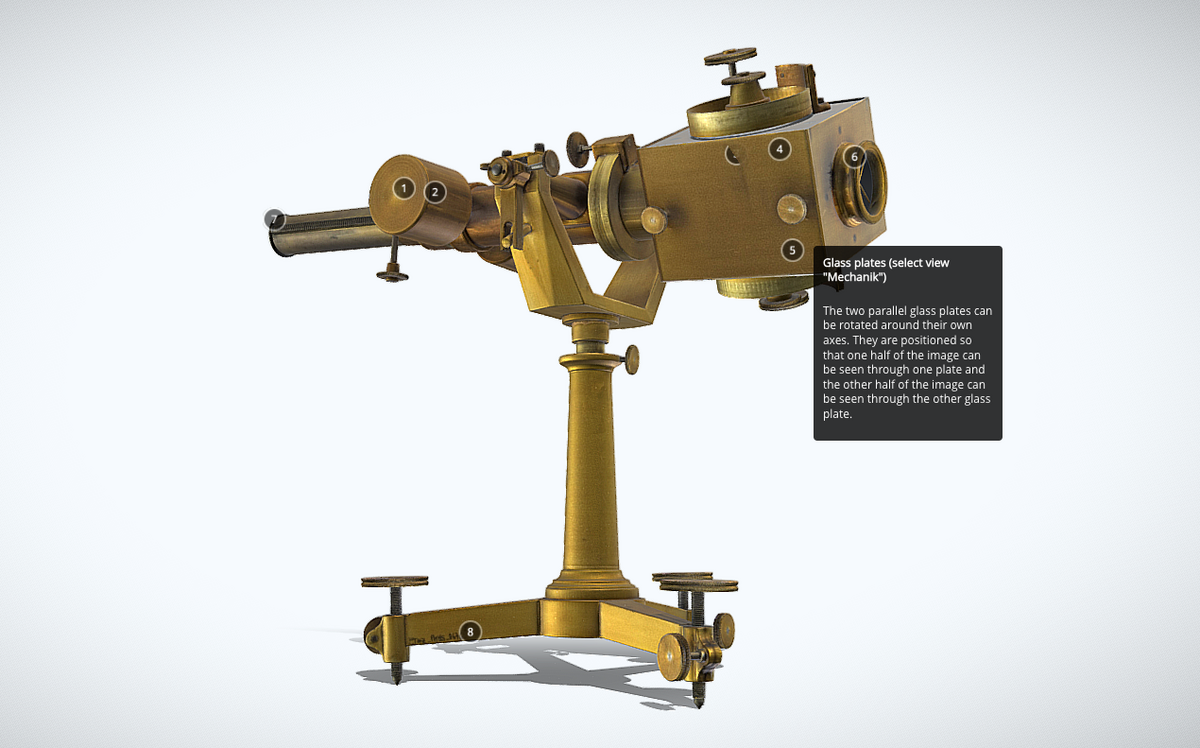
Ophthalmometer after Hermann von Helmholtz
CC-BY-SA Creator: Collection of scientific instruments and teaching aids, ETH library, ETH Zurich, Model: ikonaut
In 2022, the collection of scientific instruments and teaching aids at the ETH Library digitized 20 selected objects from its collection in 3D. As the collection catalog does not have a 3D viewer, Sketchfab was chosen as a presentation platform for the models. The models are available there and can be downloaded freely as part of the open data policy. The 3D models are also uploaded to Europeana. With regard to the use of 3D models in research, it is essential to be able to publish them. We have tested this case by contextualizing the models in a blog. A follow-up project is specifically dedicated to the question of the use of 3D models in teaching – for this purpose, 10 mathematical models were 3D-digitised, which will be used in teaching at the Department of Mathematics in 2024. Adhering to the FAIR principles throughout the entire process is important, but only possible to a limited extent with the current infrastructure. In this regard, Semantic Kompakkt would help extend the infrastructure capabilities.
Projects 5 and 6: "Unlocking the Hidden Value of Seals", and "Creating a Sustainable Infrastructure for Research-Based Teaching in Byzantine Studies"
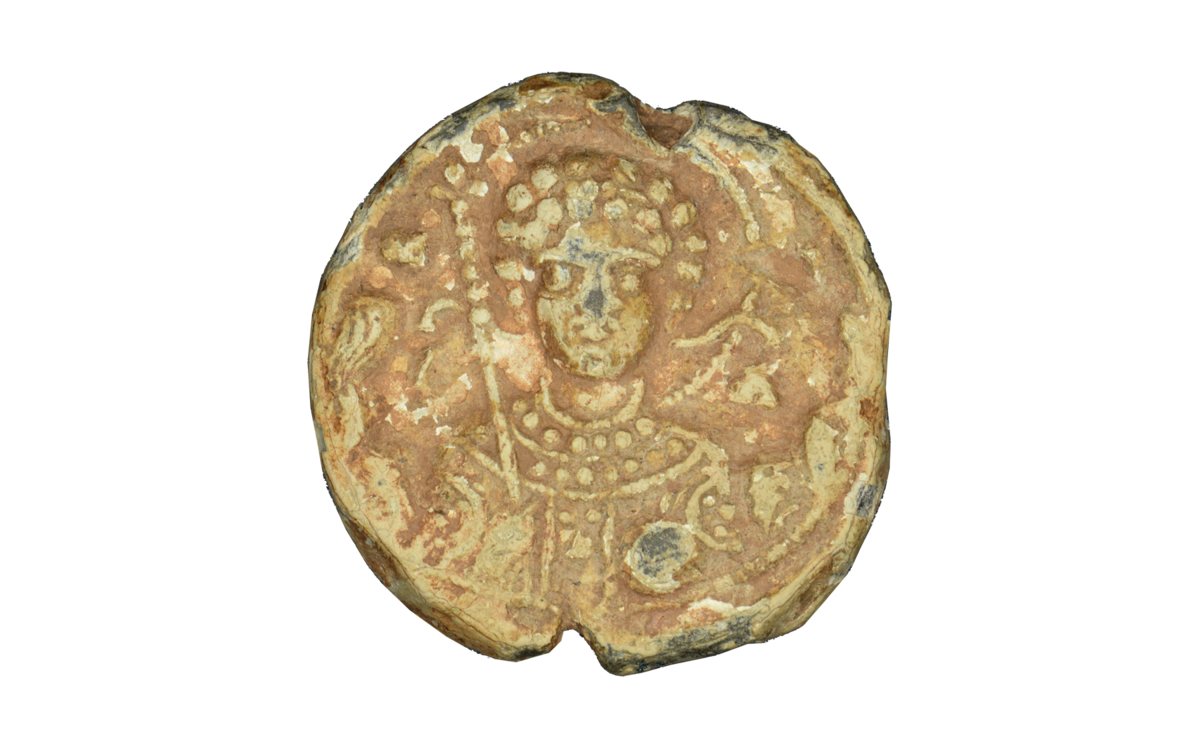
Byzantine Seal
CC-BY-SA Creator: Cologne Center for eHumanities (CCeH)
The Cologne Center for eHumanities (CCeH) and Cologne Byzantine Studies are currently working on two joint projects to digitally record and process lead seals, which are an important source for the field of "Byzantine Studies". The core of the first project ("Unlocking the Hidden Value of Seals", DFG-ANR) is the digital cataloging of four collections of Byzantine lead seals (approx. 4,000 pieces in total). With Reflectance Transformation Imaging (RTI), a digital imaging process is being used to support the legibility, analysis and presentation of seals. The creation of 3D models of the seals is planned as a further method for the visualization and analysis of the seals. The second project ("Creating a Sustainable Infrastructure for Research-Based Teaching in Byzantine Studies", VW Foundation) is part of the "Structural Strengthening of Small Subjects" initiative and aims to innovatively develop a cluster of four Byzantine sub-disciplines – sealology, numismatics, epigraphy and Greek manuscript studies. In this context, not only the creation and presentation of 3D models (primarily seals) is of interest, but in particular their indexing with the help of various tools that can be used for research, teaching and learning purposes.
Project 7: Digital Archive of Mathematical Models
Material mathematical models are usually hidden treasures in remote scientific collections. The Digital Archive of Mathematical Models of the TU Dresden, Institute of Geometry, would like to make them accessible to a broad public for research and teaching. People from mathematics, engineering disciplines, architecture, design, history, art and interested parties are cordially invited to browse the collections, discover inspiring artifacts and observe revealing connections across borders and eras.
Project 8: Woonstroom
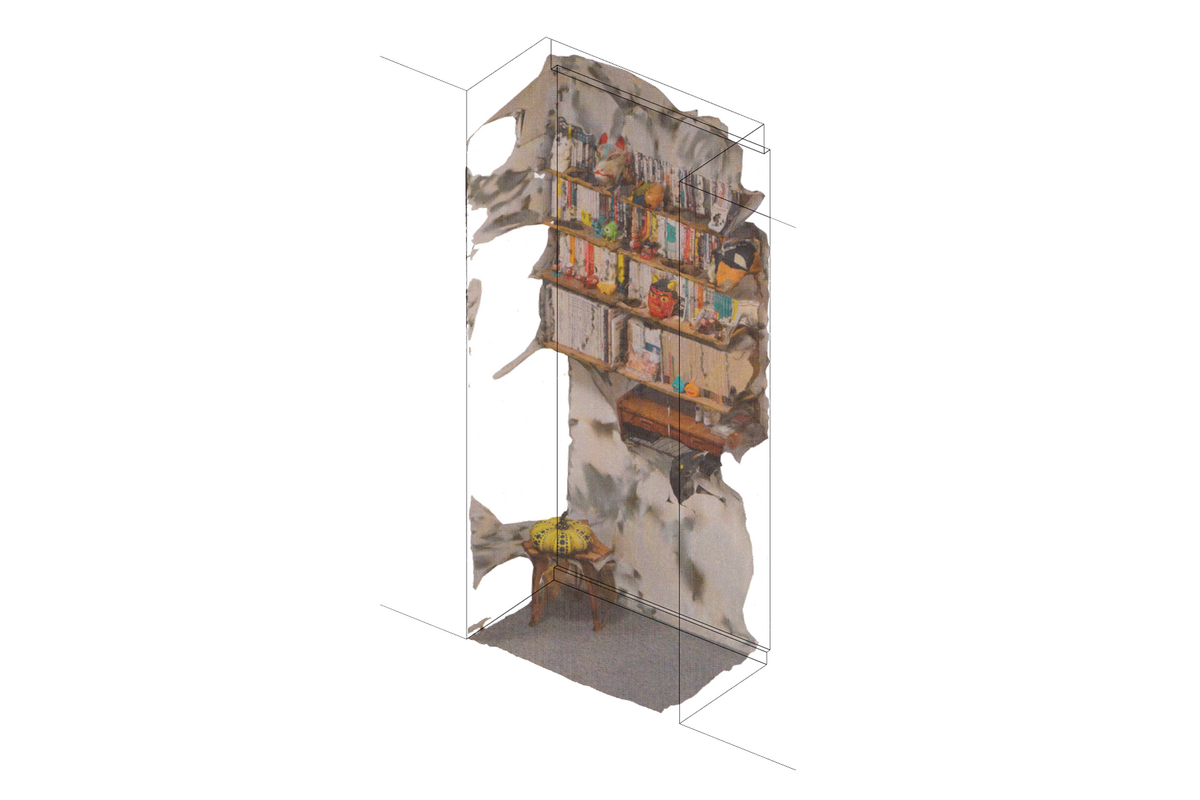
3D model from the Woonstroom project
CC-BY-SA Creator: Studio Stad
A joint project between RWTH Aachen University and Studio Stad (NL), Woonstroom strives to bridge the knowledge gap on international housing cultures and develop housing typologies for an international flow of inhabitants. Cultural exchange has a positive effect on the diversity of food, fashion and languages, but is hardly expected in the domain of dwelling. In the Netherlands housing policies and products are limited by national borders, even though 25% the population has a migration background and future growth is only possible with immigration. 3D housing models alongside contextual metadata will be added to Semantic Kompakkt’s public repository and made available for further research uses.
Project partners
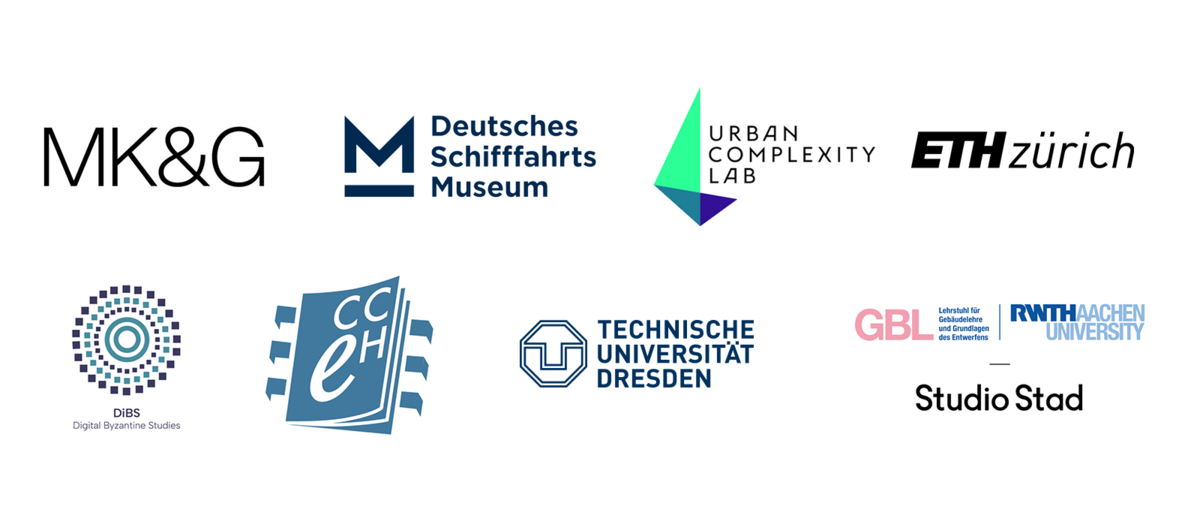
Link to Semantic Kompakkt: https://semantic-kompakkt.de/
Contact persons: Lozana Rossenova & Zoe Schubert (Firstname.Lastname@tib.eu)
